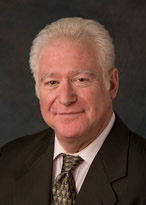Changes in practice patterns routinely occur over time, both with in an individual psychologist's practice and between generations of practitioners. However, little empirical research has been conducted to examine psychologists' practice patterns across their collective professional life span, and whether meaningful differences exist in these patterns among a sample of psychologists. This article examines clinical practice patterns among a sample of California psychologists whose collective career life span ranges from I to 40 years of postlicensure experience. The data for this article were drawn from the 2000 California Survey of Psychological Practice (hereafter the California Survey; Pingitore, Scheffler, Haley, Sentell, & Schwalm, 200Ia).
For practicing psychologists, this study will allow them to make meaningful comparisons of their practice patterns with colleagues who possess more or fewer years of experience. Making these comparisons will contribute to their understanding of how clinical practice develops over time. For psychologists who educate and train students, this study will inform them on whether recent changes in the scope and content of clinical psychology training have resulted in meaningful differences in practice patterns for recent graduates in comparison with senior members of the profession. Last, for those who work in professional associations serving psychologists, this study will illustrate whether recently licensed psychologists engage in unique clinical service roles, settings, and reimbursement mechanisms in comparison with more experienced colleagues. Such information may assist professional associations in tailoring their services to support the unique practice patterns of less experienced psychologists.
Experienced-Based Differences in Professional Practice
Historical accounts of psychotherapy practice have documented the shifts in clinical service roles among psychologists from hospital-based practice that involved testing or the delivery of psychoanalytically oriented therapy to outpatient practice involving the use of a variety of psychotherapies (Freedheim et al., 1992). The structure of the mental health industry itself, such as the routine availability in organized settings of junior or entry level positions for recently licensed psychologists, may also account for differences in practice style. Recent surveys among psychologists have found important experienced-based differences in reported yearly income, predominant work setting, perceived quality of work, and attitudes toward managed care (Phelps, Eisman, & Kohout, 1998; Pion, Kohout, & Wicherski, 2000; Williams, Wicherski, & Kohout, 2000). Data from the California Survey, drawn from a representative sample of clinical psychologists, may add to these generally acknowledged characteristics of professional practice by examining whether current trends dominant in the profession have contributed to differences in practice (Pingitore et al., 2001a).
Among the trends is the "feminization" of the profession that since the 1980s has altered the gender composition among cohorts of psychologists. (Pion et al., 1996). Significant differences in practice styles between men and women psychologists have been reported (Sentell, Pingitore, Scheffler, & Schwalm, 2001). Given these developments, to what degree are observed experienced based practice differences due to the fact that, as a group, less experienced psychologists include a larger proportion of women than more experienced groups of psychologists?
A second trend has been the continued implementation by the profession of changes in the scope and focus of doctoral education and training. For example, commencing in the 1990s, psychologists have proposed particular changes in doctoral psychology education and training, such as an emphasis on the delivery of services to non-Whites and all persons with coexisting general medical conditions. These changes may have led newly licensed psychologists to practice differently than older colleagues (American Psychological Association [APA], 1995; Association of Professional Psychology Internship Centers, 1993). To date, no data have been available to determine what, if any, practice pattern differences exist across these groups of psychologists. Finally, managed care has resulted in dramatic changes in the authorization, frequency, type of services, and fee structures offered by psychologists to persons with private insurance. However, little research has been undertaken to inform psychologists about the relationship between years of postlicensure experience, managed care participation, and practice patterns.
The 2000 California Survey of Professional Psychology Project
. . .Continue to read rest of article (PDF).
David P. Pingitore, PhD, ABPP, has over 30 years of experience in Professional Psychology as an administrator, faculty, researcher and clinician. Dr. Pingitore is Board Certified in Clinical Psychology through the American Board of Professional Psychology. Licensed to practice in California, Hawaii, and Nevada, Dr. Pingitore has conducted over 200 forensic psychological and neuropsychological assessments for the civil and criminal arenas. He has served as a consultative examiner for the Social Security Administration for over 20 years and was a member of the medical staff of two community hospitals during his professional career.
©Copyright - All Rights Reserved
DO NOT REPRODUCE WITHOUT WRITTEN PERMISSION BY AUTHOR.











